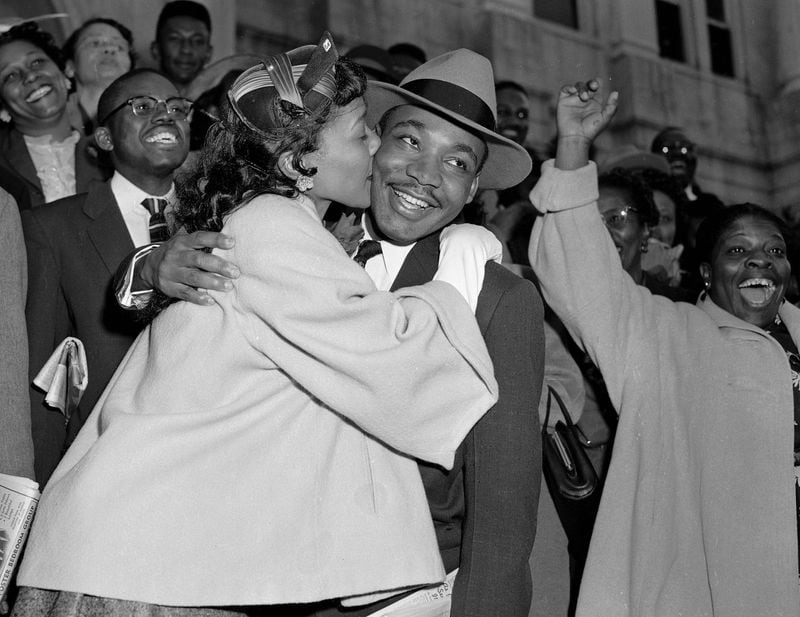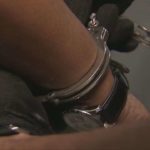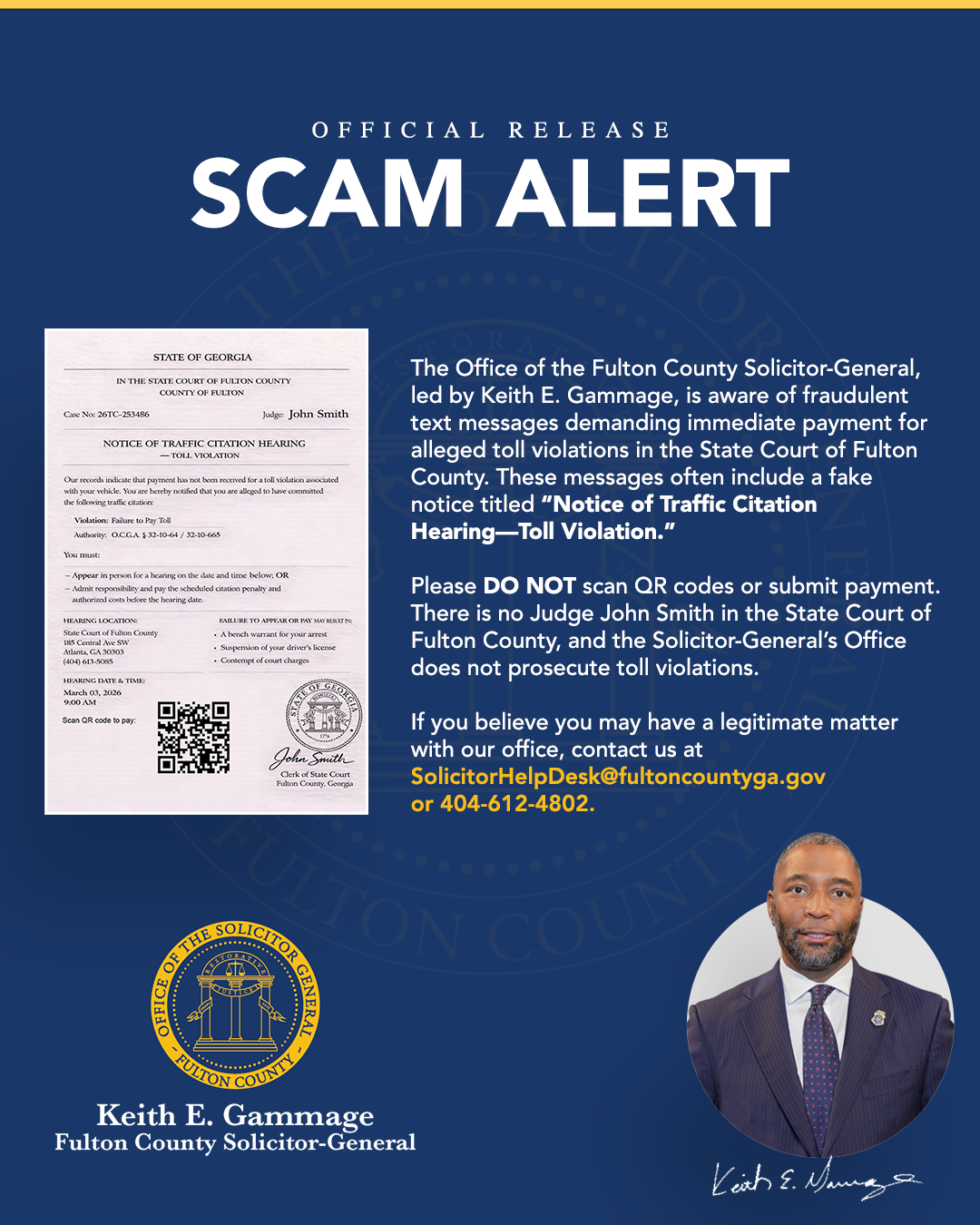By Ernie Suggs, The Atlanta Journal-Constitution
Solicitor general wants to expand conversation about program that has already cleaned more than 3,000 misdemeanor records
The last thing Martin Luther King Jr. ever wanted to do was get arrested.
So on Oct. 19, 1960, when he and dozens of young protesters were arrested in downtown Atlanta for participating in a sit-in demonstration at Rich’s department store, setting off a series of historic events, he was devastated.
“King didn’t like to be arrested. He was not like John Lewis,” said King’s biographer Clayborne Carson, referring to a later conversation King had with his wife, Coretta Scott, where he said that the loneliness of prison was too difficult to bear, adding: “He just broke down and cried and then he felt so ashamed of himself.”
“Even the Rich’s arrest,” Carson continues. “I don’t sense that he meant to get arrested when he came to Rich’s that day.”
In his 39 years on earth and 13 years as the leader of the American Civil Rights Movement, King was arrested more than 20 times, mostly on misdemeanors related to civil protest.ADVERTISINGAds by Teads
At least once, the 1960 incident which led to a jail sentence, he was arrested in Fulton County.

Credit: CHARLES D. JACKSON, THE ATLANTA JOURNAL-CONSTITUTION
Now, on the eve of the anniversary of King’s April 4, 1968, assassination, Fulton County Solicitor General Keith Gammage has promised to clear his criminal record in the county.
“I always had in my mind, what effect would it have if we expunged the record for arrests of Martin Luther King Jr and the other civil rights protestors and called those arrests what they were – unconstitutional and biased arrests?” said Gammage, 48. “There is a gap between social justice-related protests and activism and a true criminal offense. And what the protesters and activists were fighting for, remains a barrier for other citizens today.”
Peniel E. Joseph, a professor at the LBJ School of Public Affairs and the history department in the College of Liberal Arts at The University of Texas, and a leading scholar of “Black Power Studies,” said King’s record should be cleared “as a matter of political and legal ethics.”
“The record should be expunged in the sense that the society, and not Martin Luther King Jr., were the ones guilty of crimes of violence and illegality against black bodies in that generation,” Joseph said. “It’s important to recognize that as a corollary to expanding contemporary notions of guilt and innocence as we try to pursue expansive criminal justice reform in the state of Georgia and nationally.”
Removing a yoke
It is part of a crusade that Gammage has been on since being elected in 2016.
Since 2017, Gammage — Fulton’s leading misdemeanor prosecutor — has cleared the records of more than 3,000 people who have had non-violent and low-level charges hanging over their heads. His misdemeanor expungement division offers free year-round access for people — who have been charged with crimes like possession of marijuana or criminal trespassing — to apply for what is officially known as criminal record restriction.
“Some of the people whose records we expunged were in their 70s who couldn’t get into senior housing for an arrest 20 years earlier for a $15 bad check or stealing a loaf of bread,” Gammage said. “What people have said it has been removing a yoke from around their necks.”

Recent studies have shown that a cleared record increases the likelihood of employment by 22% and an average yearly income increase of $5,760.
Doug Ammar, the long-time executive director of the Georgia Justice Project, said more than 4.4 million people living in Georgia have some kind of criminal record.
“Having a record can interfere with all kinds of opportunities, legally so. It stops them from doing what everybody wants them to do — take care of themselves and their families and have a quality of life,” Ammar said. “Even posthumously, this will send a signal and educate people about the impact of the criminal justice system. If Dr. King had that issue with all of who he was, think of how much impact this is for people poor and people of color who don’t have access?”
King’s arrests
According to the King Center, the organization founded by his wife after his assassination, King was arrested 30 times. Most of them involved some sort of activism and most of them were misdemeanors, including:
- His first arrest came on Jan. 26, 1956, when he was arrested in Montgomery, Ala., as part of a campaign to intimidate the bus boycotters. Four days later, on Jan. 30, King’s home was bombed. In March, King was arrested again, along with Rosa Parks on charges of organizing the Montgomery Bus Boycott.
- He was arrested twice in 1958. Once for loitering and two days later for disobeying a police officer and fined $14.
- In 1961, he was arrested in Albany for obstructing the sidewalk and parading without a permit.
- Perhaps his most famous arrest happened on April 12, 1963, when he and Ralph Abernathy were arrested in Birmingham for demonstrating without a permit. It was during his time in jail that he wrote his “Letter from Birmingham Jail.”
- Carson, King’s biographer, said King’s only felony charge came in 1960 when he became the first person ever criminally charged in the state of Alabama on tax fraud. King was accused of falsifying his 1956 and 1958 Alabama income tax returns. An all-white jury acquitted him.

Credit: Copyright 2018 The Associated Press. All rights reserved. This material may not be published, broadcast, rewritten or redistributed. Copyright 2018 The Associated Press. All rights reserved. This material may not be published, broadcast, rewritten or redistributed. Copyright 2018 The Associated Press. All rights reserved. This material may not be published, broadcast, rewritten or redistributed. Copyright 2018 The Associated Press. All rights reserved. This material may not be published, broadcast, rewritten or redistributed. Copyright 2018 The Associated Press. All rights reserved. This material may not be published, broadcast, rewritten or redistributed. Copyright 2018 The Associated Press. All rights reserved. This material may not be published, broadcast, rewritten or redistributed. Copyright 2018 The Associated Press. All rights reserved. This material may not be published, broadcast, rewritten or redistributed. Copyright 2018 The Associated Press. All rights reserved. This material may not be published, broadcast, rewritten or redistributed. Copyright 2018 The Associated Press. All rights reserved. This material may not be published, broadcast, rewritten or redistributed. Copyright 2018 The Associated Press. All rights reserved. This material may not be published, broadcast, rewritten or redistributed. Copyright 2018 The Associated Press. All rights reserved. This material may not be published, broadcast, rewritten or redistributed. Copyright 2018 The Associated Press. All rights reserved. This material may not be published, broadcast, rewritten or redistributed. Copyright 2018 The Associated Press. All rights reserved. This material may not be published, broadcast, rewritten or redistributed.
Joseph, whose latest book “The Sword and the Shield: The Revolutionary Lives of Malcolm X and Martin Luther King Jr.,” traces what he calls “the civil rights movement’s heroic period,” from 1954 when King came on the scene and 1965, when Malcolm X was assassinated, called all of King’s arrests “very significant.”
“They illustrated how unjust American society was and in many ways continues to be,” Joseph said. “They definitely still resonate now in the age of mass incarceration. Martin Luther King and his generation tried to turn arrests from markers of shame into badges of honor.”
Oct. 19, 1960
But none of those cases had the personal ramifications that his Atlanta arrest had.
Five months before his arrest, on May 4, King was stopped in DeKalb County for no other reason than he was driving a white woman. The borrowed car he was driving had an expired license plate. And King, who had just moved back to Georgia, was still using his Alabama driver’s license. Georgia law required new residents to obtain a new license within 90 days. King was given a ticket and allowed to go on.
On Sept. 23, 1960, King appeared before Judge J. Oscar Mitchell of the DeKalb County Civil and Criminal Court to resolve the traffic ticket. Mitchell dismissed the charge on the expired plates. But for not having a Georgia license, he fined King $25 and put him on probation, requiring that King “shall not violate any Federal or State penal statutes or municipal ordinances,” for one year.
Less than a month later, it is unclear if King actually knew he was on probation when he agreed to Lonnie King, Julian Bond and Herschelle Sullivan’s plea to join them in protesting outside of Rich’s and get arrested.
Lonnie King said later, “I indicated to him that he was going to have to go to jail if he intended to maintain his position as one of the leaders of the civil rights struggle.”
Reluctantly, King went with the students.
“The consequences for him were greater than the students,” Carson said.

On Oct. 19, King and 25 others were arrested for refusing to leave the department store after being denied service. It would be the first time that King would spend a night in jail.
The arrest violated his DeKalb probation and Judge Mitchell sentenced him to four months. Shortly after his conviction, King was awakened in his jail cell at 3:30 in the morning. He was handcuffed and had irons placed on his feet. He was loaded into the backseat of a police car and driven to the Georgia State prison in Reidsville.
“Reidsville was very traumatic for him,” Carson said. “They didn’t tell him where he was being transferred to. He didn’t know if they were going to beat or kill him or whether it was meant to scare him. They certainly accomplished that.”
Vice President Richard Nixon, who was running for president, refused to intervene. John F. Kennedy, his democratic party rival did. His brother Robert Kennedy called Judge Mitchell and King was released. King’s father, Daddy King, a lifelong Republican, publicly endorsed Kennedy in an election that he won by just 112,000 votes.
Badge of Honor
Still, Gammage’s ruling just impacts Fulton. Other arrests, even the one in DeKalb, would not be included.
“I would be a proponent of starting the conversation in Fulton and encouraging others to do the same,” said Gammage, a member of the board of trustees at King’s old church, Ebenezer Baptist Church.
Gammage said that he would be interested in expunging the records of all civil rights workers who were arrested in Atlanta. One of those would be Bernard LaFayette, who was arrested in 1961 for challenging desegregation rules at the bus station.
Now a professor at Auburn University, LaFayette said he would turn down Gammage’s offer if asked.
“I wouldn’t want mine expunged. That is part of my history as a civil rights worker,” said LaFayette, who was arrested 30 times.
“Our arrests were for challenging the segregation system. That was necessary in order to change the conditions.”

Carson, the director of the Martin Luther King Jr. Research and Education Institute at Stanford University, has had his share of arrests as a civil rights advocate. He said he is in favor of clearing records of people who are “suffering the long-term consequences for short term behavior.”
“I like in general misdemeanor being expunged from the record. It is really a good idea to do that in a massive way,” Carson said. “When you do the time, you pay your debt, that should be the end. Unfortunately, it’s not.”
But Carson, who was arrested twice in the 1960s as a student at UCLA, once for passing out leaflets at a train station, said he is not sure if he would want his record expunged.
“It is a badge of honor and it doesn’t change the historical reality that you were arrested,” Carson said.
But Gammage is moving on.
He said that he has had positive conversations with the King family about his plan and “wouldn’t do it without their full support.”
Bernice King, the CEO of the King Center, could not be reached for comment.
“This could be a clarion call for other people that they could have their records cleaned and cleared and have a second chance at the American dream,” Gammage said.





